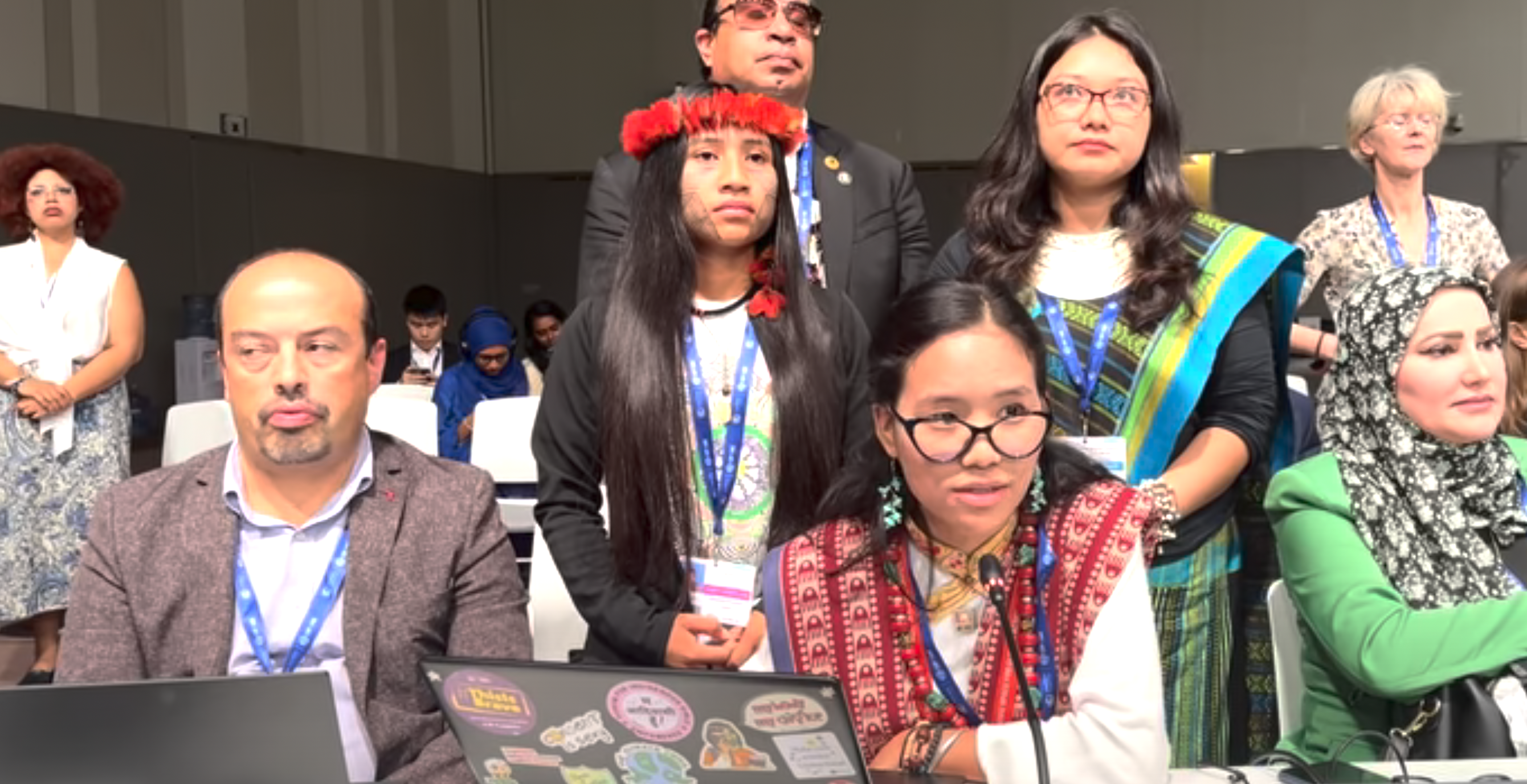
- Details
- By Jenna Kunze
Late last week, more than 70,000 delegates from nearly every nation in the world met in Dubai, United Arab Emirates, to begin a two-week climate conference known as the Conference of Parties, or COP28.
On the first day of the conference, world nations approved an initial draft of a Loss and Damages Fund, where richer countries will pay towards a fund that can be accessed by developing countries that are particularly vulnerable to the adverse effects of climate change. The United States committed $17.5 million to the fund, the United Arab Emirates committed $100 million, Germany committed $100 million, Japan committed $10 million, and the United Kingdom about $50 million to the fund and close to $38 million for other arrangements.
Leaders are still deciding how the funding mechanisms for the Loss and Damages Fund will operate.
Indigenous Youth activist Pema Wangmo Lama Mugum, representing the National Indigenous Women's Federation of Nepal, read an opening statement on Nov. 30, on behalf of the Indigenous Peoples' Caucus.
“We demand for a meaningful process, including direct access to the fund, for Indigenous Peoples,” Wangmo Lama Mugum said of the Loss and Damages Fund. “Indigenous Peoples are facing increasing disasters in our homelands as states fail in their commitment to limit temperature rising to 1.5 degree Celsius. In 2023, this cap was exceeded, threatening our ways of life in Asia and around the world.”
According to NDN Collective Southwest Regional Director Janene Yazzie, who is on the ground in Dubai, international funds often operate under a model that prioritizes donor countries.
“In this way, it serves neocolonialism over and over again to the detriment of the intended beneficiaries,” she said in a statement. “This is a way for them to influence political power under the guise of offering help and aid when what we really need is for resources to flow in a way that upholds the rights and self-determination of Indigenous Peoples.”
One of the priorities Indigenous People, smaller countries, and underfunded countries have been advocating for is a formal body to handle disputes when injustices occur– a Grievance Mechanism.
“By putting pressure on environmental regulations and on political governance systems in a way that allows transnational companies to come in to manipulate and monopolize development, expanding their corporate empire, is why we need safeguards in place that protect Indigenous Peoples’ rights,” Yazzie said in a statement. “These larger settler countries rely on entities like the World Bank and the IMF to serve as intermediaries that uphold these agendas. At NDN, we are showing how transformative an Indigenous-led and designed movement organization can be.”
More Stories Like This
Chilkat Indian Village Tells New Palmer Mine Owners They Are “Not Welcome” in Chilkat ValleyTribes, Coastal Group Ask Army Corps to Revoke Permit for Texas Export Terminal
Michigan Tribes Tell Supreme Court: Don’t Bail Out Enbridge
Alaskans Raise More Than $1 Million For Communities Devastated by Typhoon Halong
A True American Tale: Indigenous Rights vs. Corporate Greed
Help us tell the stories that could save Native languages and food traditions
At a critical moment for Indian Country, Native News Online is embarking on our most ambitious reporting project yet: "Cultivating Culture," a three-year investigation into two forces shaping Native community survival—food sovereignty and language revitalization.
The devastating impact of COVID-19 accelerated the loss of Native elders and with them, irreplaceable cultural knowledge. Yet across tribal communities, innovative leaders are fighting back, reclaiming traditional food systems and breathing new life into Native languages. These aren't just cultural preservation efforts—they're powerful pathways to community health, healing, and resilience.
Our dedicated reporting team will spend three years documenting these stories through on-the-ground reporting in 18 tribal communities, producing over 200 in-depth stories, 18 podcast episodes, and multimedia content that amplifies Indigenous voices. We'll show policymakers, funders, and allies how cultural restoration directly impacts physical and mental wellness while celebrating successful models of sovereignty and self-determination.
This isn't corporate media parachuting into Indian Country for a quick story. This is sustained, relationship-based journalism by Native reporters who understand these communities. It's "Warrior Journalism"—fearless reporting that serves the 5.5 million readers who depend on us for news that mainstream media often ignores.
We need your help right now. While we've secured partial funding, we're still $450,000 short of our three-year budget. Our immediate goal is $25,000 this month to keep this critical work moving forward—funding reporter salaries, travel to remote communities, photography, and the deep reporting these stories deserve.
Every dollar directly supports Indigenous journalists telling Indigenous stories. Whether it's $5 or $50, your contribution ensures these vital narratives of resilience, innovation, and hope don't disappear into silence.
 The stakes couldn't be higher. Native languages are being lost at an alarming rate. Food insecurity plagues many tribal communities. But solutions are emerging, and these stories need to be told.
The stakes couldn't be higher. Native languages are being lost at an alarming rate. Food insecurity plagues many tribal communities. But solutions are emerging, and these stories need to be told.
Support independent Native journalism. Fund the stories that matter.
Levi Rickert (Potawatomi), Editor & Publisher

